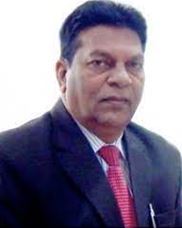Course Coordinator & the Instructors

Course Coordinator
Prof. V. Kesava Rao is a distinguished academician, legal scholar, and administrator with over four decades of experience in academia. He has served as Vice-Chancellor of DSNLU, Visakhapatnam, and NUSRL, Ranchi.
His academic work focuses on constitutional principles and legal theory. Prof. Kesava Rao has authored numerous research papers, delivered lectures across India, and is widely respected as a mentor to generations of law students and scholars.

Mr. Charan Tej holds a B.Tech in Electrical & Electronics Engineering and a law degree, with a Master's in Corporate and Securities Law and a post-graduation in Sociology. He is pursuing doctoral research in Clinical Legal Education at NALSAR.
Before joining NALSAR, he was an Assistant Professor at CHRIST University and a practicing attorney specializing in Environmental Litigation and Land Laws. He has been involved in notable cases such as Isha Foundation forest encroachment, Coovum restoration, and Ennore oil spill.
His areas of specialization include Environmental Law, Corporate Law, Public Interest Litigation, and Legal Clinics. He is also a member of the ADB’s Law and Policy Reform program for developing Environmental Law Champions in Asia.

Ms. Preety Anand joined NALSAR University of Law in August 2023 as an Assistant Professor of Law. Previously, she served as Assistant Professor at Chanakya National Law University, Patna.
She earned her LL.M. in Criminal Law from the Indian Institute of Technology, Kharagpur. Her academic interests include law of crimes, criminology, police and prison administration, and gender justice.